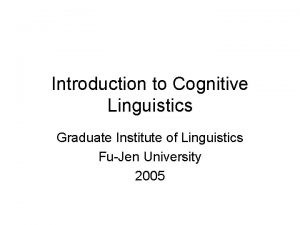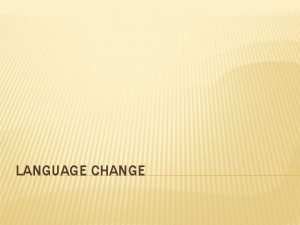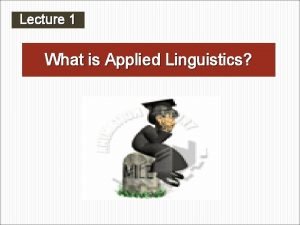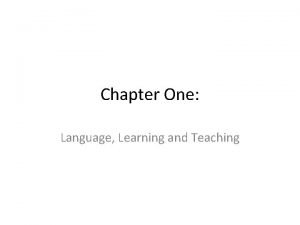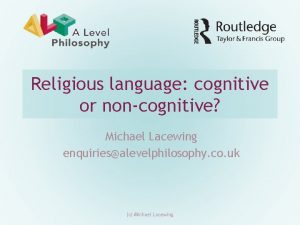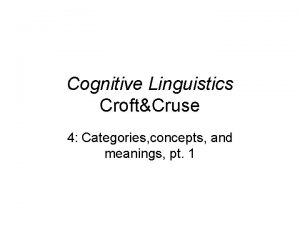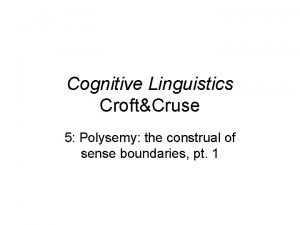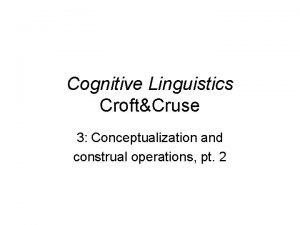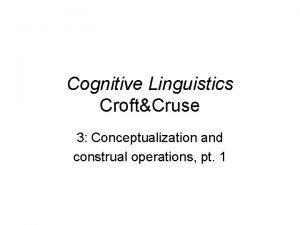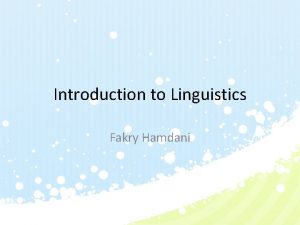Cognitive Linguistics CroftCruse 1 Introduction what is cognitive






- Slides: 6

Cognitive Linguistics Croft&Cruse 1: Introduction: what is cognitive linguistics?

Three hypotheses guide Cognitive Linguistics: • Language is not an autonomous cognitive facility • Grammar is conceptualization • Knowledge of language emerges from language use • [These three hypotheses present alternatives to generative syntax and truthconditional semantics]

Language is not an autonomous cognitive facility • Corollaries: – Linguistic knowledge – the knowledge of meaning and form – is conceptual structure. This means that semantic, syntactic, morphological, and phonological representation is conceptual. – The cognitive processes that govern language are the same as other cognitive abilities. The component cognitive skills are not unique to language.

Language is not an autonomous cognitive facility • Implications for research: – Cognitive linguistics aims to demonstrate that language can be adequately modeled using general conceptual structures and cognitive abilities – There is a serious attempt to ensure that cognitive linguistic models comport well with results of research in cognitive psychology

Grammar is conceptualization • Conceptual structure cannot be reduced to a truth-conditional correspondence with the world. Human beings conceptualize their experience, and all aspects of conceptual structure are subject to construal. Grammatical inflections and constructions play a major role in construing experience.

Knowledge of language emerges from language use • Categories and structures in semantics, syntax, morphology and phonology are built up from our cognition of specific utterances on specific occasions of use. • [I would argue that this is both an inductive and an abductive process, not just inductive…]
